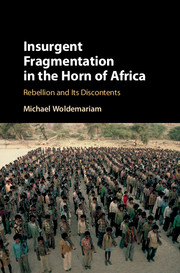 Ethiopia is on the move. The resignation of beleaguered Prime Minister Hailemariam Desalegn in February ushered in the most significant reordering of political power in the country since 1991, when youthful guerrillas toppled the long-serving Marxist strongman Mengistu Haile Mariam, notes Michael Woldemariam, Assistant Professor of International Relations and Political Science at Boston University.
Ethiopia is on the move. The resignation of beleaguered Prime Minister Hailemariam Desalegn in February ushered in the most significant reordering of political power in the country since 1991, when youthful guerrillas toppled the long-serving Marxist strongman Mengistu Haile Mariam, notes Michael Woldemariam, Assistant Professor of International Relations and Political Science at Boston University.
The new administration, led by 42-year-old Prime Minister Abiy Ahmed, has pursued an aggressive, reformist agenda. It wants to rewrite Ethiopia’s old, authoritarian social contract and unite the country’s fractured society, he writes for Foreign Affairs:
 It isn’t yet clear whether Abiy will succeed, and progress so far has been mixed. But if he does, Ethiopia will have a chance not only to reinvent itself but also to bring a wave of reform and perhaps even democratization to the wider region…
It isn’t yet clear whether Abiy will succeed, and progress so far has been mixed. But if he does, Ethiopia will have a chance not only to reinvent itself but also to bring a wave of reform and perhaps even democratization to the wider region…
Whatever the future holds for the region, no new settlement will be durable unless Abiy’s reforms succeed. Abiy has achieved laudable—and unexpected—progress. What comes next will be harder. The Ethiopian state must contain the tide of ethnic violence while avoiding democratic backsliding. Achieving free, fair, and orderly general elections in 2020 will be the critical test. If the transition succeeds, Ethiopia will be held up as an example of the kind of inclusive and accountable governance that is possible in the Horn of Africa.
 “If the transition fails, it will be treated as proof that political liberalization is unsuited for the tough and unforgiving realities of the region. The stakes for Ethiopia and its neighbors couldn’t be higher,” argues Woldemariam, the author of Insurgent Fragmentation in the Horn of Africa: Rebellion and Its Discontents.
“If the transition fails, it will be treated as proof that political liberalization is unsuited for the tough and unforgiving realities of the region. The stakes for Ethiopia and its neighbors couldn’t be higher,” argues Woldemariam, the author of Insurgent Fragmentation in the Horn of Africa: Rebellion and Its Discontents.







